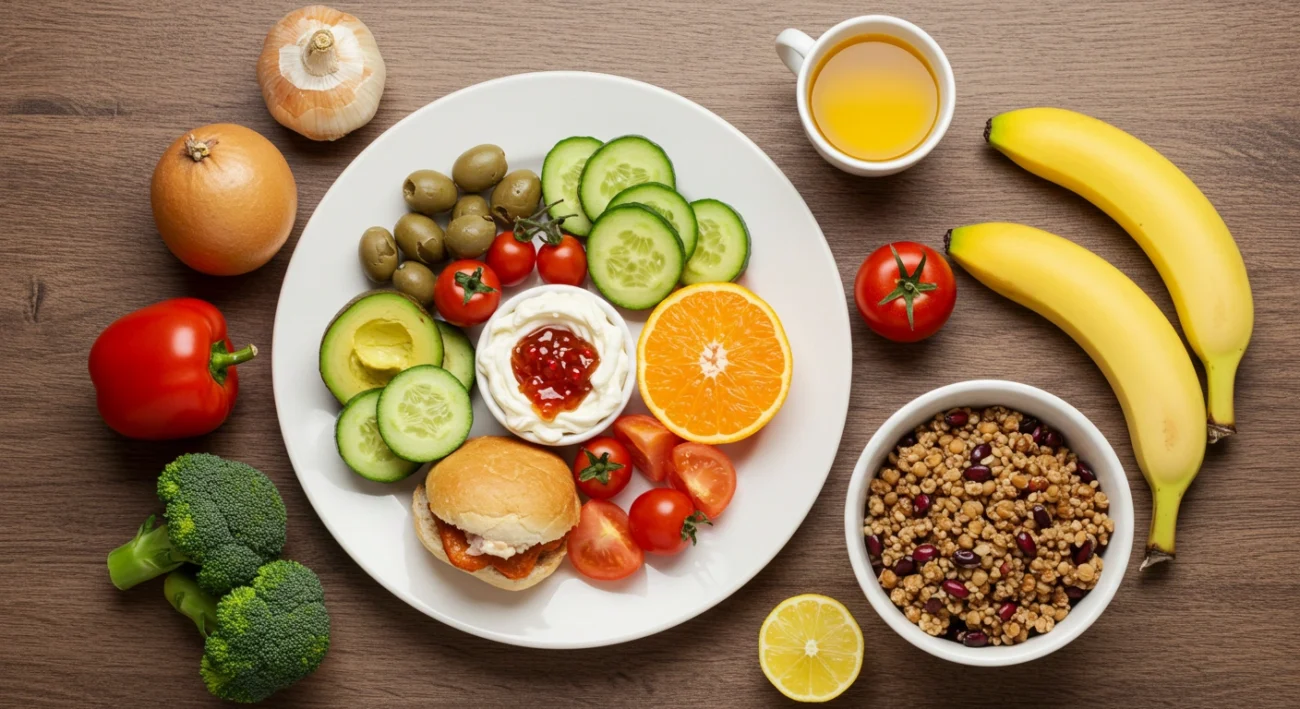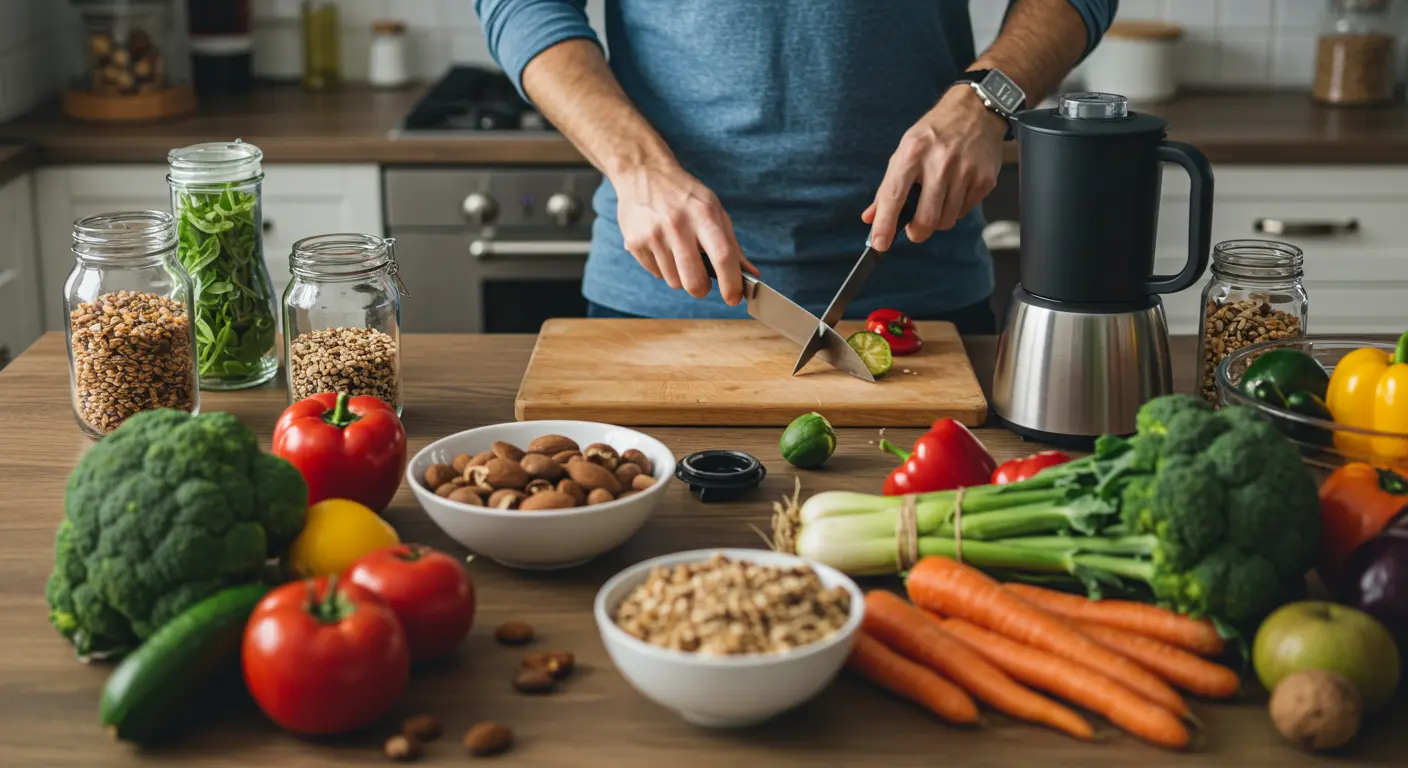Eating healthy is not just about maintaining a certain body weight or appearance. It’s about feeling your best, having energy, and reducing your risk of chronic diseases like heart disease, diabetes, and cancer. But let’s face it, when you’re busy, it’s easy to fall into the trap of eating whatever is convenient. However, with a few simple strategies, you can make healthy eating a part of your routine without sacrificing your time or sanity.
We’ll break down some easy-to-implement tips for healthy eating that work even if you’re constantly on the go. Whether you’re a busy professional, a parent, or someone who just has a packed schedule, you’ll find helpful advice for nourishing your body without the stress.
Plan Ahead to Avoid Last Minute Junk Food
One of the biggest reasons people skip healthy meals is because they don’t have a plan. When you don’t plan, you end up reaching for whatever is easiest usually something unhealthy. But it doesn’t have to be this way.
Start by dedicating just 15-20 minutes a week to meal planning. Sit down and map out your meals for the week, including lunch and dinner. You don’t need to create gourmet meals; the goal is simply to have something ready to go. If you take time to plan, you can make healthier choices and avoid impulse decisions.
Don’t forget to keep healthy snacks on hand, too. Think yogurt, fruit, nuts, or whole-grain crackers. These quick snacks will curb your hunger without resorting to unhealthy options like chips or cookies.
Simple, Nutritious Breakfast Ideas
Breakfast doesn’t have to be a complicated affair. In fact, some of the healthiest breakfasts are the simplest ones. The key is to balance your meal with protein, healthy fats, and fiber to keep you full and energized throughout the morning.

Here are a few quick breakfast ideas that fit into even the busiest schedule:
- Overnight Oats: Just mix oats with almond milk (or your favorite milk) and top with berries or nuts. Let it sit overnight, and it’s ready to eat in the morning.
- Greek Yogurt and Fruit: High in protein and low in sugar, Greek yogurt is a perfect base for a quick breakfast. Add some fruit and a sprinkle of chia seeds or nuts for extra fiber and healthy fats.
- Smoothie: Blend fruits, leafy greens, protein powder, and almond milk for a portable, nutrient-packed meal.
You can prepare most of these the night before, so all you have to do in the morning is grab it and go!
Quick and Healthy Snacks to Keep You Energized
Healthy snacks are a game-changer when you’re busy. Rather than reaching for processed, sugar-laden snacks, choose nutrient-dense options that fuel your body and keep you satisfied between meals.
Here are a few ideas that are quick, portable, and full of good-for-you ingredients:
- Nut Butter and Apple Slices: Slice up an apple and dip it in almond or peanut butter for a satisfying combo of fiber and protein.
- Hummus and Carrot Sticks: Hummus is rich in healthy fats and fiber, while carrots add a nice crunch and boost of vitamin A.
- Trail Mix: Make your own trail mix with nuts, seeds, and a little dried fruit for a balanced snack that provides healthy fats, protein, and carbs.
Having a few snacks prepared and ready to go will help you avoid the temptation of vending machine options.
Meal Prep Made Easy
Meal prepping is a lifesaver for busy people looking to eat healthy without spending hours in the kitchen. By dedicating a few hours on the weekend to preparing meals, you can save yourself time during the week and avoid unhealthy choices.
To make meal prep easier:
- Batch Cook Grains and Proteins: Prepare large portions of grains (like quinoa or brown rice) and proteins (like chicken or tofu) that you can use in multiple meals.
- Pre-Chop Vegetables: Cut up vegetables and store them in containers. You’ll have them ready for quick salads, stir-fries, or soups.
- Use the Freezer: Freezing leftovers or pre-made meals like soups or stews is a great way to have healthy options on hand without the need for cooking every night.
How to Make Healthy Eating More Affordable
Eating healthy doesn’t have to break the bank. While it’s true that organic and specialty health foods can be expensive, there are plenty of ways to eat healthily on a budget:
- Buy in Bulk: Purchasing items like grains, legumes, and frozen vegetables in bulk can save you money in the long run.
- Shop Seasonal Produce: Seasonal fruits and vegetables tend to be cheaper and fresher than out-of-season produce.
- Cook from Scratch: While it may take a little more time, cooking from scratch is almost always cheaper than buying pre-packaged meals.
Making small adjustments to your grocery habits can make a big difference to your budget.
Stay Hydrated and Avoid Sugary Drinks
Water is crucial for good health, but many people overlook its importance. Drinking enough water helps with digestion, keeps your skin looking healthy, and even boosts your energy levels.
Avoid sugary sodas and energy drinks, which can lead to crashes and unwanted weight gain. Instead, try infusing your water with lemon, cucumber, or mint for a refreshing twist.
If you struggle to remember to drink water, keep a reusable water bottle with you throughout the day as a reminder to hydrate.
Get Creative with Vegetables
Vegetables are packed with nutrients and fiber, but it’s easy to get bored with the usual broccoli or spinach. To keep things interesting, try different ways of preparing vegetables. Here are some ideas:
- Veggie Stir-Fry: Toss vegetables with olive oil, garlic, and a splash of soy sauce for a quick, flavorful dish.
- Smoothies: Add spinach or kale to your morning smoothie for an extra nutrient boost. You won’t even taste it!
- Cauliflower Rice: Swap out regular rice for cauliflower rice to cut calories and carbs without sacrificing flavor.
Get creative with your veggies, and you’ll be surprised at how tasty and exciting they can be.
FAQs
How can I eat healthy if I don’t have time to cook?
You can still eat healthy by meal prepping, choosing quick and nutritious snacks, and opting for simple meals like salads or smoothies. Preparing meals in advance can save you a lot of time during the week.
What are some healthy snack options for work?
Some great healthy snack options for work include nuts, yogurt with fruit, sliced veggies with hummus, or whole-grain crackers with cheese.
Is it possible to eat healthy on a budget?
Yes! You can eat healthy on a budget by buying in bulk, shopping for seasonal produce, and cooking meals from scratch. Avoiding processed foods will also save you money in the long run.
How much water should I drink every day?
A good rule of thumb is to drink at least 8 cups (64 ounces) of water a day, but you may need more depending on your activity level and environment
Conclusion
Healthy eating doesn’t have to be complicated. By planning ahead, keeping quick meals and snacks on hand, and making a few simple swaps, you can nourish your body even on the busiest of days. Remember, it’s all about balance and making sustainable choices that work for your lifestyle. With a little preparation and a positive mindset, eating healthy will become second nature, no matter how hectic life gets.


